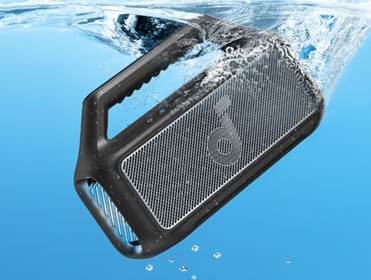Loudspeakers are
essential components for anyone who values high-quality sound, whether it’s for
home theater, music, or professional use. Proper maintenance and cleaning can
significantly prolong their lifespan and ensure they deliver the best audio experience.
Neglecting these aspects can lead to accumulated dust and debris, which can
degrade sound quality and cause physical damage. In this guide, we will walk
you through the best practices for cleaning your loud speakers, ensuring strong
connections, placing them optimally, and handling them correctly.

Best Practices for Cleaning
Loudspeakers
Dust
and dirt can impact sound clarity. Follow these steps to keep your speakers
clean and performing at their best.
Safe Methods for Cleaning the
Exterior
To keep your loudspeakers looking
their best, start with the exterior. Use a soft, dry microfiber cloth to gently
wipe down the surfaces. Avoid household cleaning products, as they might damage
the finish or seep into the speaker components. For stubborn dirt, lightly
dampen the cloth with water—never let moisture get into the speaker. Regular
dusting can prevent build-up that may block sound outputs.
How to Maintain Speaker Grilles and
Covers
Grilles and speaker covers also
require regular cleaning to prevent dust accumulation, which can affect sound
clarity. Remove the grilles gently, if possible, and use a vacuum with a soft
brush attachment to clean both sides. If the grilles are fabric, a lint roller
can help remove debris. For non-removable grilles, a dust brush or can of
compressed air can reach tight spots. Consistent cleaning ensures that your
speakers look and sound their best.
Ensuring Strong and Clear Speaker
Connections
Proper
connections ensure clear, uninterrupted audio. Check cables regularly to
prevent signal loss.
Checking and Cleaning Speaker Wires
Your loudspeakers’ performance
relies on strong, reliable connections. Regularly inspect speaker wires for
wear, fraying, or damage that could impact sound quality. Use a contact cleaner
to remove oxidation or dust buildup that may cause interference. Ensure secure
wire connections to terminals to prevent audio dropouts and distortion.
Well-maintained connections help preserve clear, high-fidelity sound, ensuring
optimal performance for music, movies, or home entertainment setups.
Preventing Connection Issues and
Interference
Connection issues and interference
can impact sound quality and performance. Keep speaker cables untangled and
properly routed to prevent wear and signal degradation. Avoid running speaker
wires parallel to power cables to minimize electrical interference. Using
shielded, high-quality cables enhances signal integrity, ensuring clean,
distortion-free audio. Additionally, secure firm connections at both ends to
prevent signal loss, and regularly check for loose or corroded connections for
optimal sound clarity.
Optimal Placement and Environmental
Care for Longevity
Speaker
positioning affects sound quality and longevity. Follow these placement and
protection tips.
Positioning Your Speakers for Best
Performance
Proper speaker placement
significantly impacts sound quality. Position them at ear level when seated for
the best listening experience. Consider the room’s acoustics—soft surfaces like
rugs and curtains can help absorb excess sound, while hard surfaces may cause
reflections. Avoid placing speakers too close to walls or corners, as this can
create unwanted resonance. Using stands or isolating pads reduces vibrations,
enhances clarity, and ensures a balanced, immersive audio experience.
Protecting Speakers from Dust,
Moisture, and Heat
To extend the life of your
loudspeakers, protect them from environmental hazards. Keep speakers in a dry,
cool place away from direct sunlight or heat sources, as excessive heat can
damage internal components. Use dust covers when speakers are not in use, and
run a dehumidifier in humid environments to prevent moisture damage. Regular
environment care ensures your loudspeakers remain in top condition.

Proper Handling and Storage to
Prevent Damage
Handle
speakers carefully to prevent damage and store them properly when not in use.
Storing Loudspeakers When Not in
Use
Proper storage is crucial if you
need to put your speakers away for a while. Store them in their original
packaging or in a protective case to keep them safe from dust and damage. If
you lack the original packaging, wrap the speakers in a soft cloth and place
them in a sturdy box. Keep them in a dry, temperature-controlled environment to
avoid any adverse effects.
Avoiding Common Handling Mistakes
Properly handling your loudspeakers
helps prevent damage and extends their lifespan. Always lift them by their base
or designated handles, never by the grilles or cables, to avoid strain on
delicate components. Keep them away from sharp impacts, drops, or excessive
vibrations, as these can misalign internal parts and degrade sound quality.
Gently positioning and securing your speakers ensures long-term durability and
optimal audio performance for years to come.
Conclusion
Proper
maintenance and cleaning of your loudspeakers ensure optimal performance and
longevity. Regularly dust the exterior, clean speaker grilles, and check
connections to prevent sound distortion. Avoid exposing them to excess
moisture, heat, or dust that could degrade their components. Mindful placement
and cable management also contribute to better sound quality. By following
these best practices, your loudspeakers will continue to deliver crisp,
powerful audio for years to come.
